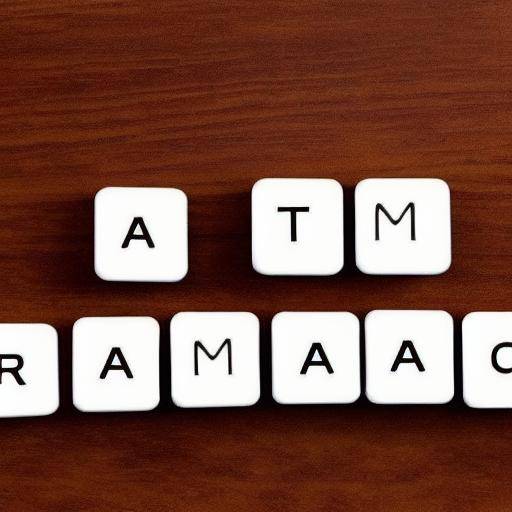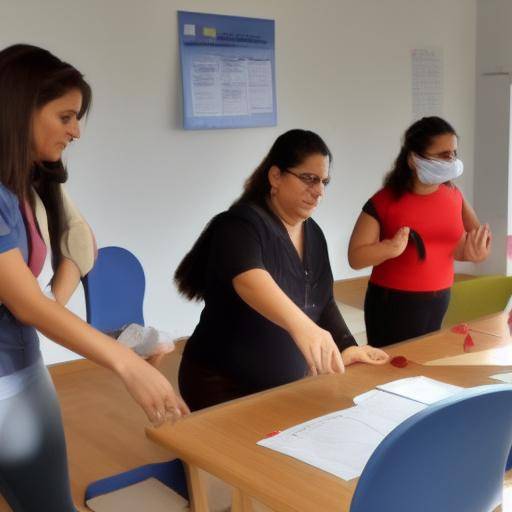
Stress is a reality that affects many people in today's society. Everyday life can be overwhelming, and stress can have adverse effects on mental and physical health. Fortunately, physical exercise has proven to be an effective tool to reduce stress and promote general well-being. In this article we will explore in depth the impact of physical exercise on stress reduction, its historical importance, benefits, practical applications, future trends and useful tips for incorporating physical activity in stress management.
Introduction
Stress is a natural response of the body to difficult or demanding situations. However, when stress becomes chronic, it can cause significant health problems, from anxiety and depression to cardiovascular diseases and sleep disorders. Physical exercise, on the other hand, has proven to be an effective tool to reduce stress while improving overall health and emotional well-being.
History and background
The link between physical exercise and stress reduction has deep historical roots. From ancient yoga and tai chi practices to the incorporation of exercise in modern medicine, the connection between physical activity and emotional well-being has been recognized and exploited throughout history.
Scientific knowledge of how exercise affects stress has evolved over time, with increasingly detailed research that demonstrates the physiological and psychological benefits of regular physical activity. From the first studies on the release of endorphins to the current research on the impact of exercise on neuroplicity and mood regulation, there is no doubt that physical exercise has a crucial role in reducing stress.
In-depth analysis
The relationship between exercise and stress is complex, and its understanding requires a detailed analysis of the physiological and psychological mechanisms involved. The effects of exercise on the release of neurotransmitters, cortisol regulation and sleep improvement are just some of the ways physical activity is involved in stress management.
In addition to its biological effects, physical exercise also offers opportunities for introspection, emotional relief and social connection, all of which are key elements in effective stress management. Understanding the complex interaction between body, mind and environment is essential to fully appreciate the impact of physical exercise on stress reduction.
Comprehensive review
The promotion of physical activity as a strategy to reduce stress is not only based on scientific evidence, but also on its applicability in everyday life. From the practice of aerobic activities to the exploration of more contemplative forms of exercise, there are multiple approaches that people can adopt to integrate physical activity into their usual routine and reduce the impact of stress on their lives.
Furthermore, addressing stress through physical exercise is not exclusive to athletes or fitness enthusiasts. The accessibility and versatility of physical activities make this strategy possible for people of all ages, levels of physical condition and social contexts. Understanding the various ways physical exercise can adapt to different people and situations is essential to maximize their impact on stress management.
Comparative analysis
By comparing exercise and stress management, it is clear that physical activity provides unique benefits that go beyond simply reducing the symptoms of stress. Although stress management techniques tend to focus on emotional and cognitive regulation, physical exercise addresses stress from a more holistic perspective, incorporating physical, mental and emotional aspects into its approach.
In addition, the comparison of physical exercise with physical activity in general highlights the diversity of options available to address stress. Physical activity is not limited to a specific type of exercise, but encompasses a wide range of activities, from yoga and moving meditation to strength training and sports practice. This variety offers people the freedom to choose activities that best fit their individual preferences, interests and needs, which in turn fosters greater adherence and enjoyment, key aspects to reducing stress in a sustainable way.
Practical advice and useful advice
The integration of physical exercise in stress management may seem overwhelming at first, especially for those who are not familiar with an active lifestyle. However, there are numerous practical advices that can help people overcome initial obstacles and make exercise an integral part of their daily routine.
- Start with small steps: It is not necessary to participate with attenuating training from the beginning. Starting with low intensity activities, such as walking or stretching, can be a significant first step to incorporate exercise into everyday life.
- Find activities to enjoy: Physical exercise does not have to be monotonous or boring. Explore different activities, from dancing to hiking, can help you find something that fits personal interests and preferences.
- Establish realistic objectives: Establishing attainable and measurable goals can provide a sense of achievement and motivation. If increasing the distance traveled in a career or improving flexibility, having clear goals can be a powerful booster to track physical activity.
- Incorporate exercise in daily routine: Performing a natural part of the daily routine, either by scheduling regular training sessions or opting for physical activities instead of passive means of transportation, can facilitate their integration into everyday life.
- Find support and company: Joining exercise groups, seeking support from friends or family, or even working with a personal trainer can provide a sense of community, additional motivation and responsibility, important factors to maintain coherence in physical exercise.
Conclusion " FAQs
Conclusion
In short, physical exercise has a significant impact on stress reduction, offering an effective and accessible way to improve emotional and physical well-being. From its rich history to the diversity of activities available, physical exercise represents a powerful tool to cope with stress in a holistic and sustainable way. By understanding their benefits, practical applications and useful tips, people can empower themselves to incorporate exercise into their daily lives and reap the fruits of effective stress management.
Frequently asked questions
What is the relationship between physical exercise and stress reduction?
Physical exercise promotes the release of endorphins, reduces cortisol levels and provides a pathway for emotional release, all of which contributes to the reduction of stress and improved emotional well-being.
What kind of exercise is more effective in reducing stress?
Several types of exercise, from yoga and meditation to cardiovascular training and strength, have proven to be effective in reducing stress. The choice of exercise depends on personal preferences and individual comfort.
How much exercise is needed to experience benefits in stress reduction?
Even small amounts of regular exercise, such as walking for 30 minutes a day, may have positive effects on stress reduction. However, the optimal amount of exercise can vary according to individual needs and capabilities.
Can physical exercise help manage long-term stress?
Yes, physical exercise can not only relieve short-term stress, but can also help reduce stress burdens in a sustainable manner over time. By incorporating exercise into the daily routine, people can strengthen their stress management skills effectively in the long term.
What role does feeding play in the relationship between exercise and stress?
Appropriate and balanced nutrition can complement the positive effects of exercise on stress reduction. Healthy feeding can support general well-being, improve recovery after exercise and promote mental health.
What are some strategies to overcome the lack of motivation to exercise?
Setting attainable goals, finding activities that one enjoys, seeking social support and changing exercise routines are some effective strategies to overcome lack of motivation and maintain coherence in physical activity.
Is there any special precaution or consideration when incorporating physical exercise in stress management?
It is important to address any changes in the physical exercise regime with caution, especially if someone has pre-existing medical conditions. Consultation with a health professional and specialist guidance can ensure safe and effective integration of exercise in stress management.
Conclusion: With physical exercise as an ally, people can face stress actively and effectively, strengthening their overall well-being and ability to cope with the challenges of everyday life. By understanding history, benefits, practical application and useful tips related to exercise and stress reduction, people can empower themselves to improve their quality of life in a comprehensive manner.
Note: This article provides general information and does not replace the professional medical council. Always consult a health professional before making significant changes in your exercise regime or looking for specific strategies to manage stress.


































